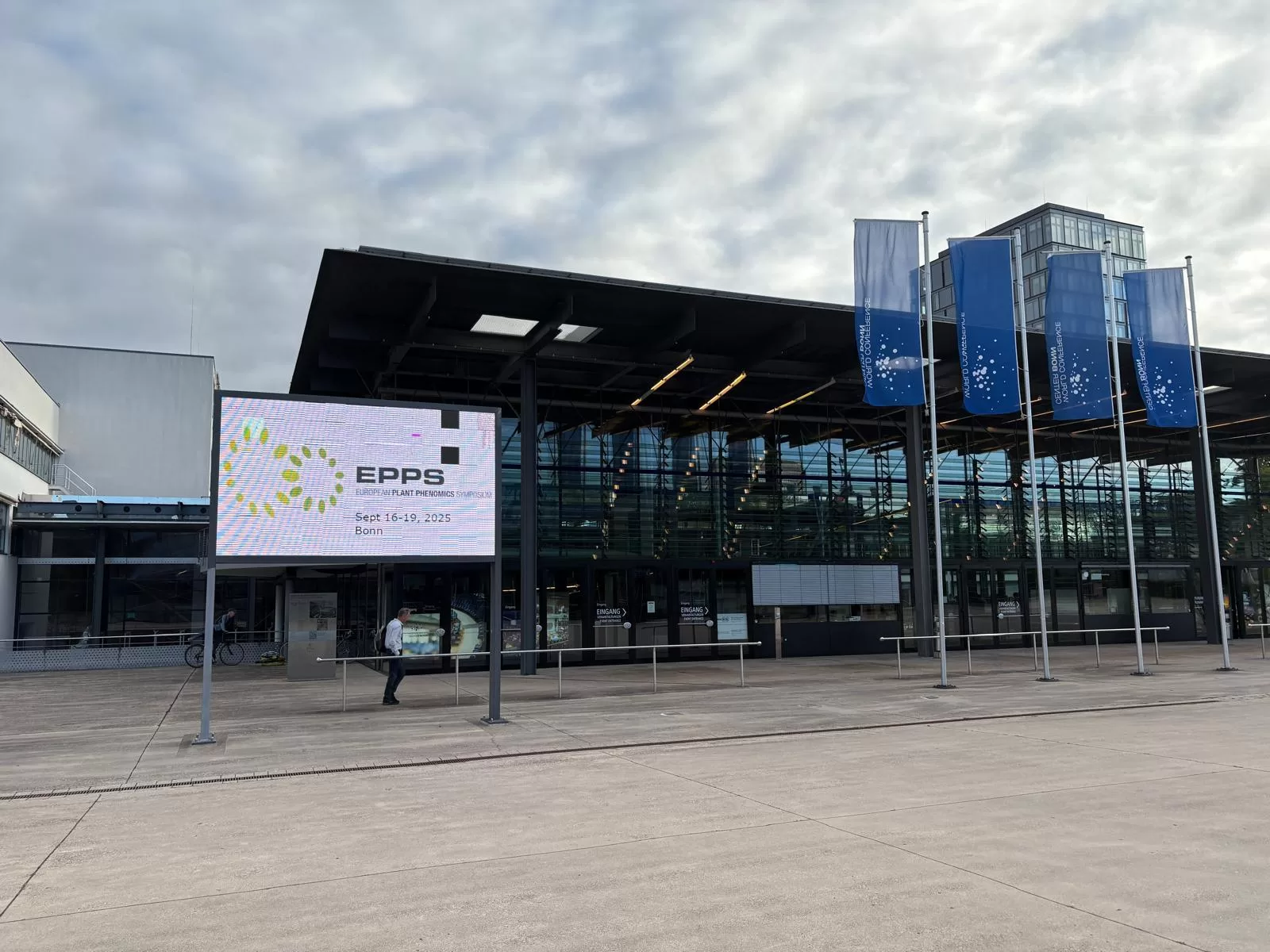
PheNo at the European Plant Phenotyping Symposium
Sara Laranjeira
PheNo coordinator
PheNo Showcased at EPPS 2025 in Bonn
The PheNo team attended and presented a poster at the European Plant Phenotyping Symposium (EPPS), held in Bonn from 16–19 September.
The team was delighted to take part in this international event, where they proudly shared the news that Norway now has its own Plant Phenotyping Infrastructure. The symposium provided a valuable platform for networking with researchers and industry peers, while also offering insights into the latest technological advancements and challenges in the field of plant phenotyping.
Adding to the significance of the occasion, the symposium took place in Bonn’s historic Old Parliament, which served as the seat of the German Bundestag from the post-war period until the government moved back to Berlin after reunification.
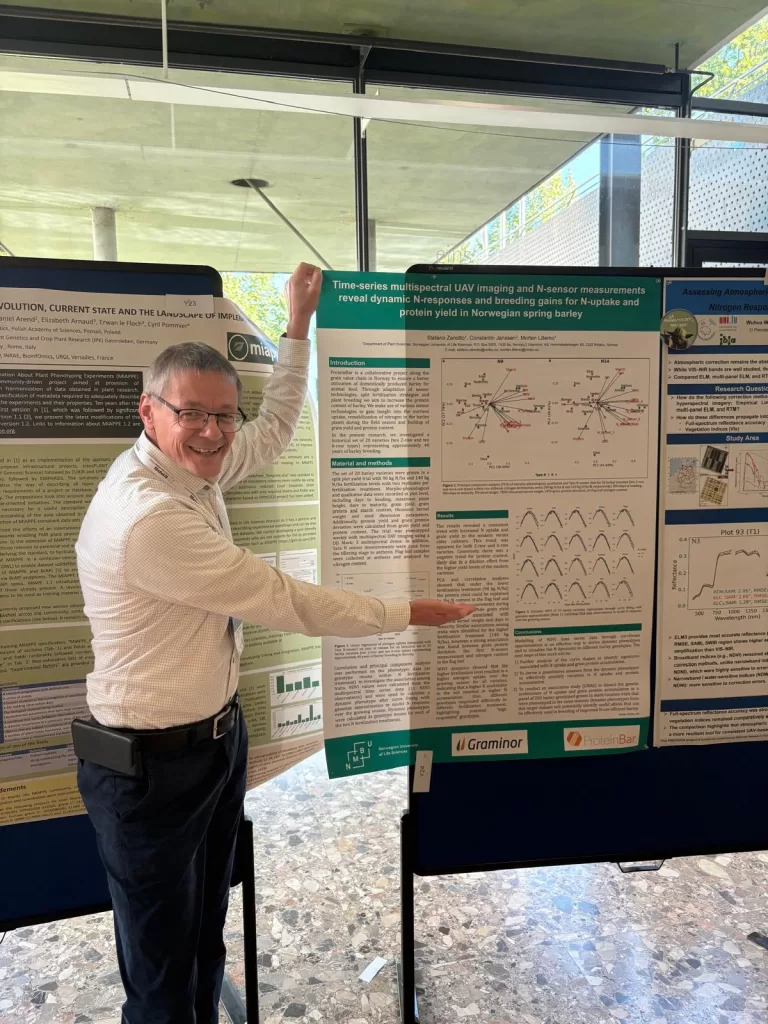
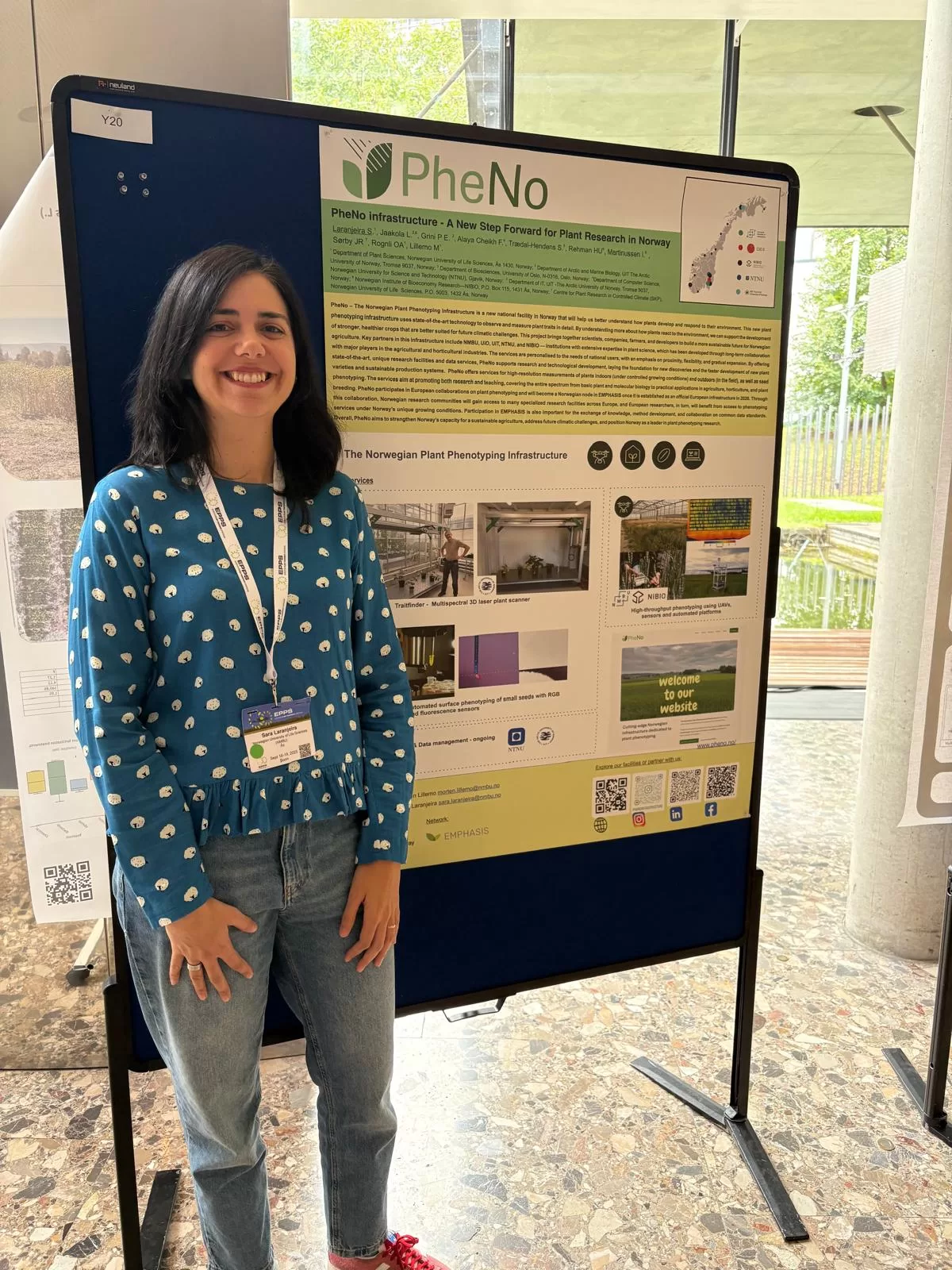
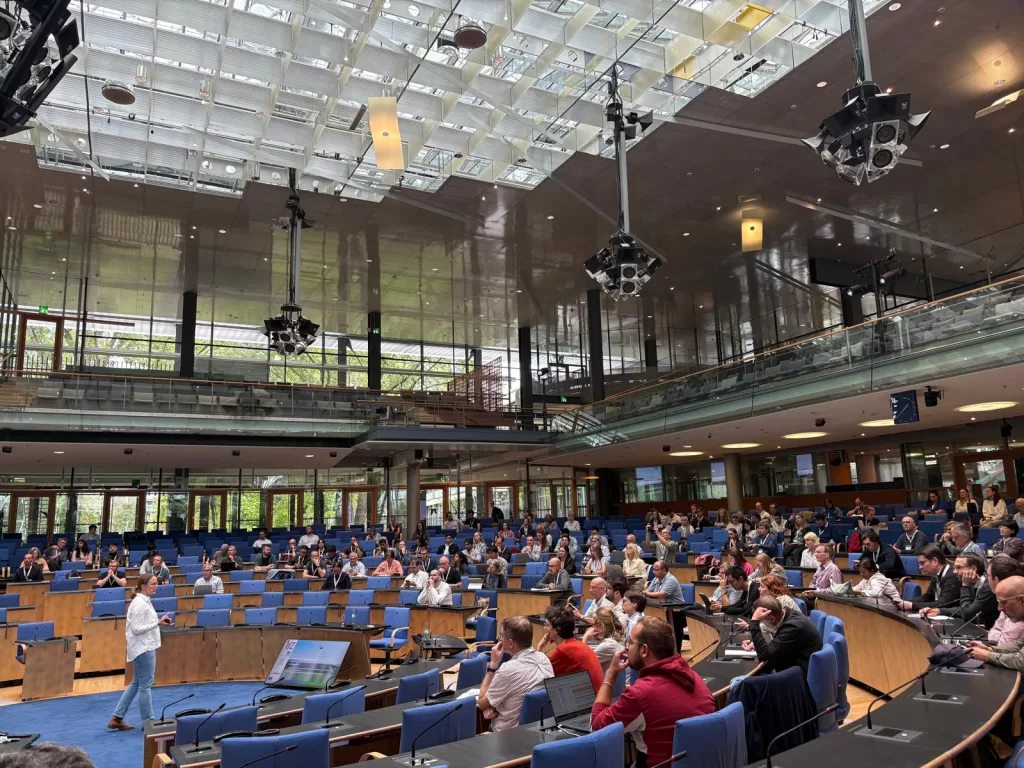
The program kicked off with a first-day tour offering exciting insights into plant phenotyping within the German Plant Phenotyping Network (DPPN).
Participants visited state-of-the-art facilities at Forschungszentrum Jülich and Campus Kleinaltendorf, where they explored innovative plant phenotyping technologies, ongoing activities, and best-practice examples shared by facility user
The symposium also featured a series of interactive workshops, ranging from image analysis without coding and phenotyping in controlled environments to satellite remote sensing applications.
Key session topics included:
- Phenotyping for stress resilience and tolerance
- AI in plant sciences and beyond
- Key stages of an AI project
- Phenotyping the hidden half
- Future development in plant phenomics
- Phenotyping for improvement of yield and quality
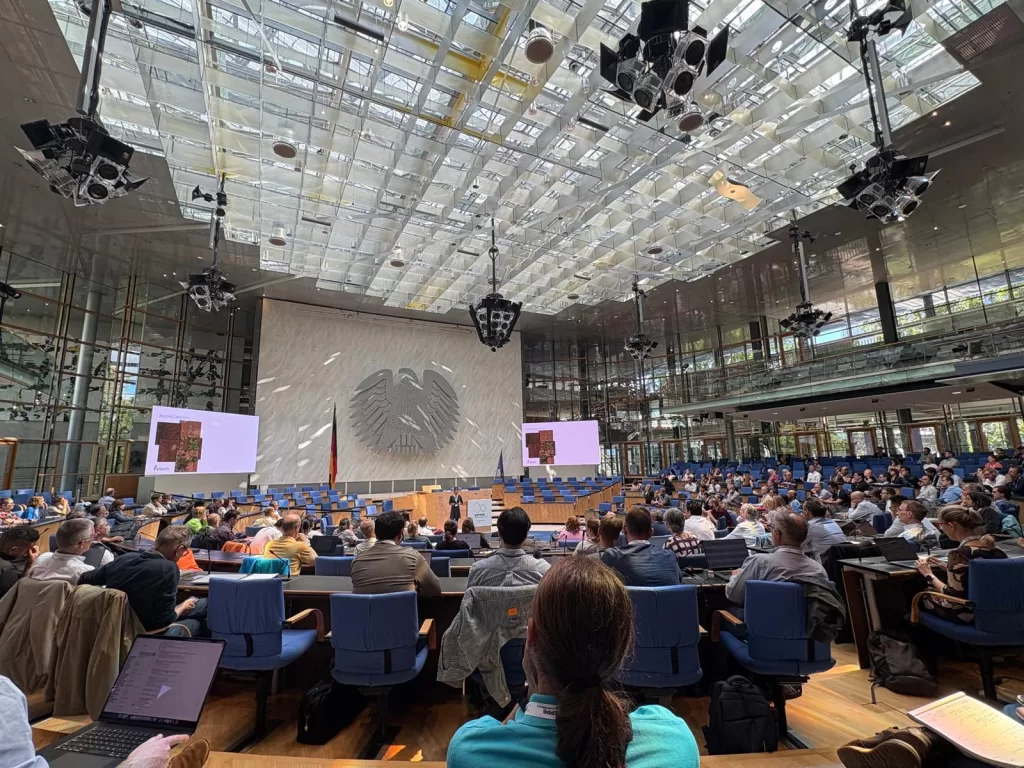
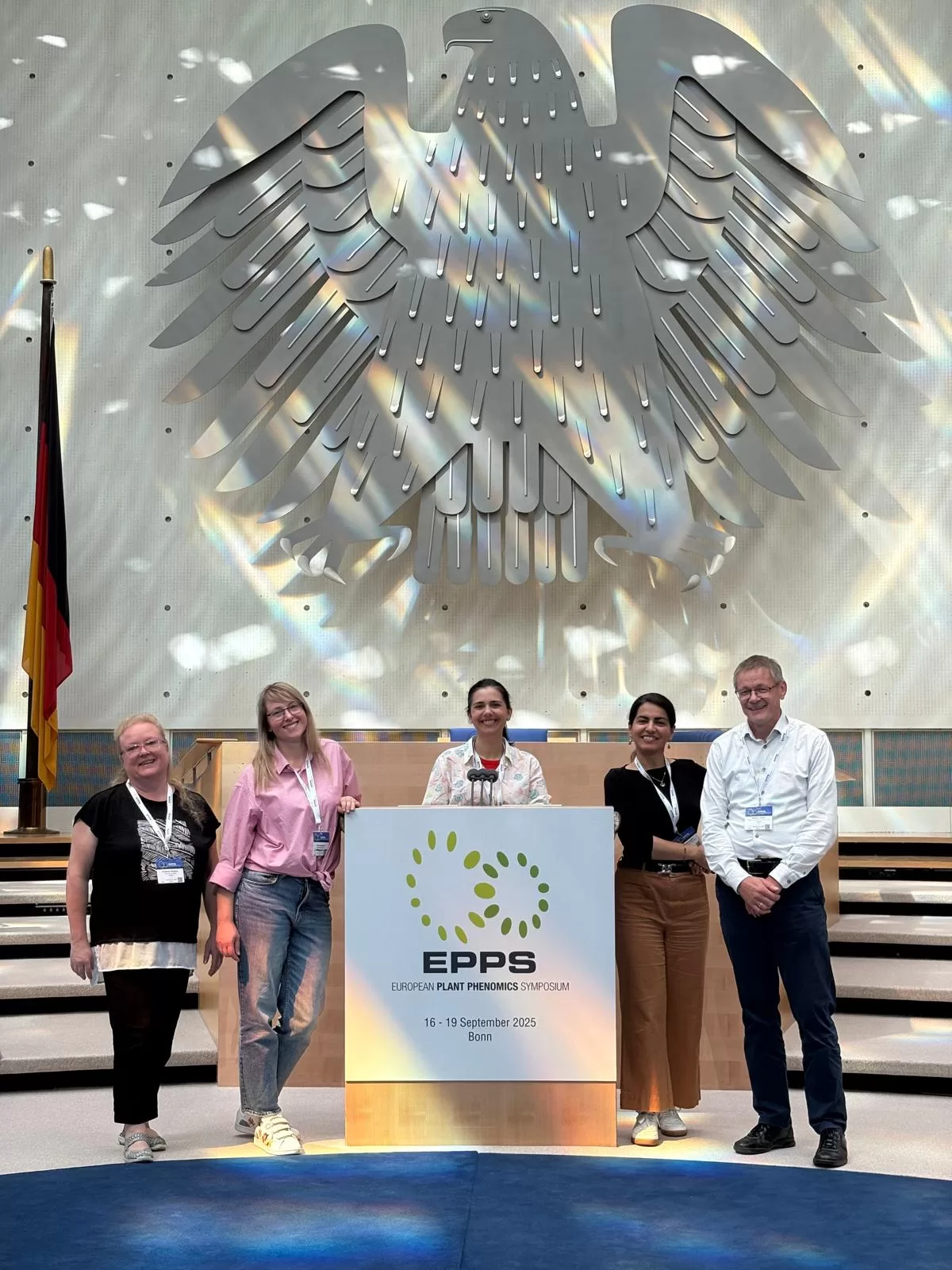
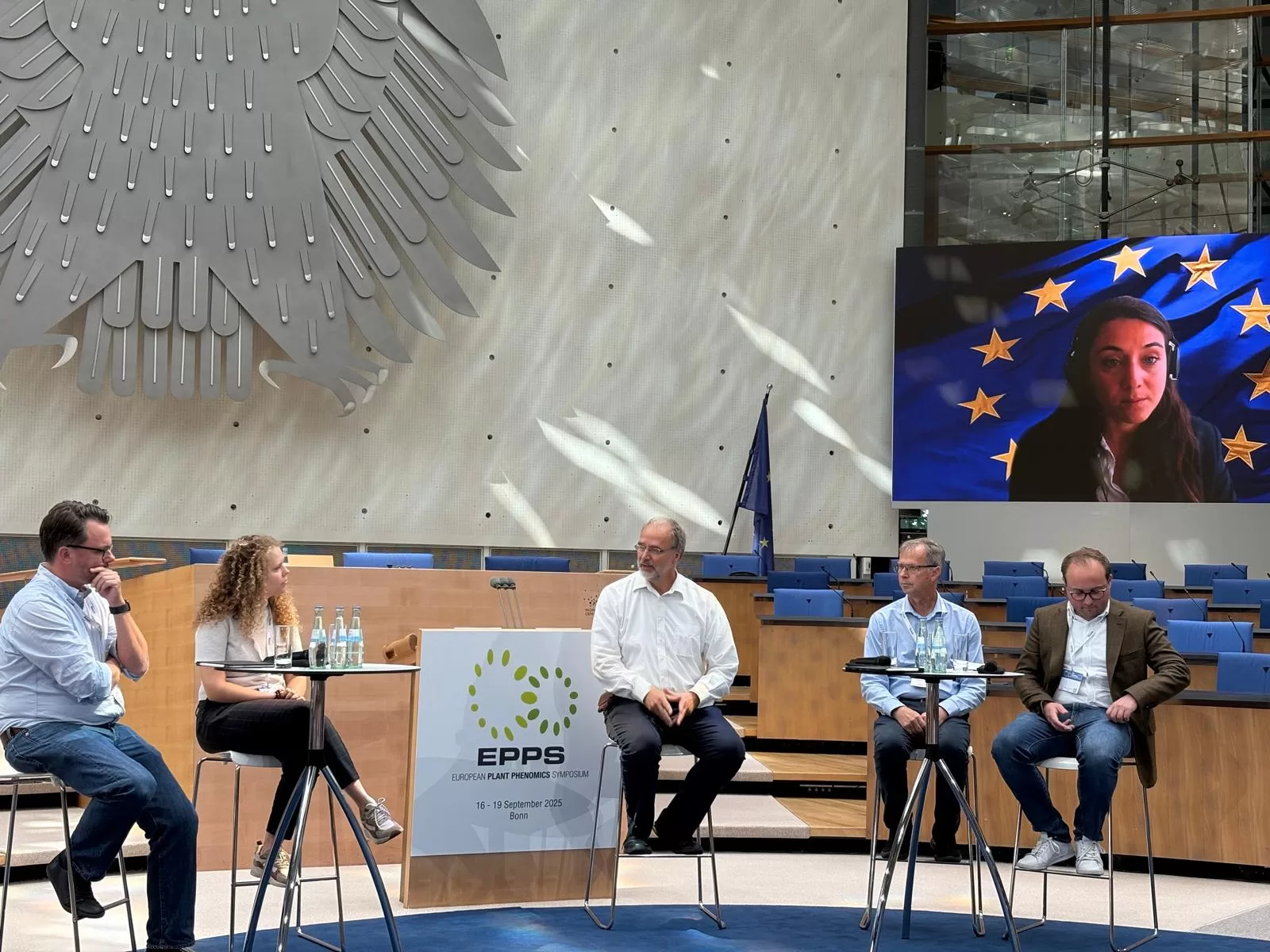
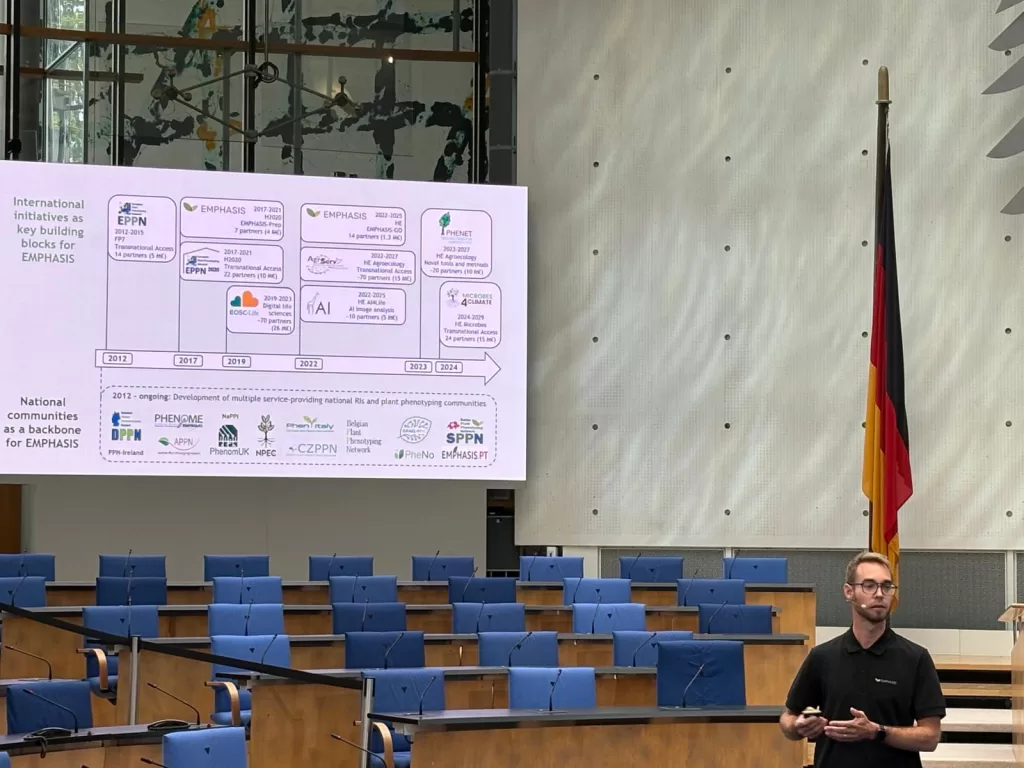
State-of-the-art technologies were showcased, with a particular focus on root phenotyping, abiotic stress, and the agricultural challenges ahead.
The future of phenomics will be shaped not only by technological advances but also by thoughtful planning and strong interdisciplinary collaboration. Beyond research, there is a growing need to bridge the gap between science, farmers, and breeders—ensuring alignment with Europe’s roadmap for agricultural development in the coming years.
The symposium not only delivered valuable take-home messages but also sparked optimism for the future of plant phenotyping. By fostering collaboration across disciplines and strengthening ties between research, practice, and policy, it highlighted the field’s vital role in meeting tomorrow’s agricultural challenges. With innovation, community, and shared vision at its core, the event set a hopeful course for the years ahead.